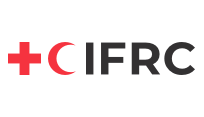T.15 Games and Toys
Games and Toys can inspire children (and adults) to improve hygiene and sanitation practices, mobilise them to get involved in activities and support behaviour change. The aim is to impart knowledge and trigger positive behaviours in a playful way and in a dynamic interaction between learning, interaction and communication.

Games and Toys are fun both for children and adults and can have an educational value, motivate learners and create additional Rewards and Incentives T.40. They also have a social component in which individuals interact and learn together in a new context (with teachers, adults or older children guiding learning objectives). The tools should generate enthusiasm and motivation and create interactive engagement with hygiene themes and objects. Learning through play keeps individuals engaged and can help to develop a deep, lasting understanding of the importance of a hygienic lifestyle. There is a wide variety of playful learning materials and guidance on how to conduct hygiene-related games available from different organisations, both as prefabricated kits or using available local materials. Approaches such as CHAST F.9, Blue Schools F.8 or ‘My School Loo’ offer a range of games and materials such as comics, memory and card games or characters for a puppet theatre as well as guidance for facilitators or teachers. Other examples include ‘Snakes and Ladders’ games with a hygiene focus that can be played with small or large groups or ‘E-Gaming’ that can reach children remotely. The use of toys (e.g. in ‘surprise soaps’ with a visible toy embedded in the centre) is another way of harnessing play and curiosity and directly linking it to target behaviours such as handwashing. Games and Toys can and should be combined with other hygiene promotion interventions.
Applicability
Games and Toys are universally applicable in both emergency and longer-term contexts. They predominantly address children of different age groups but can also be played with adults. They are easily combined with existing education or awareness-raising materials and activities (e.g. group handwashing exercises).
Do
Include children in the development process of Games and Toys (e.g. in the production of the surprise soap)
Select appropriate games for different age groups
Consider the involvement of parents in hygiene-related games
Don't
Do not rely entirely on Games and Toys to address hygiene issues or change behaviour
Do not let the game itself displace the goal of learning or be the only incentive to participate
Do not turn the game into a didactic teaching session
Practical Example
Internally displaced families in Iraq were given a surprise soap to improve handwashing behaviour among children. A pilot study by Save the Children and the London School of Hygiene and Tropical Medicine found that children were four times more likely to wash their hands with soap if it was fun. Children in the camp were involved in choosing the toys that were used.
An e-gaming platform called ‘Hygienica Castle’ was introduced in South Africa to keep schoolchildren learning and practising good handwashing habits during COVID-19. The platform allows children to create their own hygiene superhero avatar and earn points towards fun rewards in exchange for completing a daily tick-list of hygiene habits.
Key Decision Critria
Response Phase
HP Component
Target Group
Application Level
References Research and case studies using Surprise Soap
LSHTM (2018): Innovative ‘Surprise Soap’ gets Children Washing Hands in Emergencies, with Lifesaving Implications
Watson, J., Dreibelbis, R. et al. (2019): Child's Play: Harnessing Play and Curiosity Motives to Improve Child Handwashing in a Humanitarian Setting, International Journal of Hygiene and Environmental Health, Vol. 222(2). Page 177-182
‘My School Loo’ sanitation and hygiene educational games and materials
GTO (2021): My School Loo
‘Snake and Ladder’ case study from India
Kamala Devi, C. (2016): Effect of Snake and Ladder Game on Knowledge regarding Personal Hygiene among School Children at Selected Schools, Coimbatore
E-Gaming case study from South Africa
Unilever (2020): Gaming and E-learning Offer Fresh Take on Schools Hygiene Programme
Use of story mat, snakes and ladders games for hygiene messaging
Stanford University, World Vision, Sesame Street (undated): WASH UP! Factsheet





